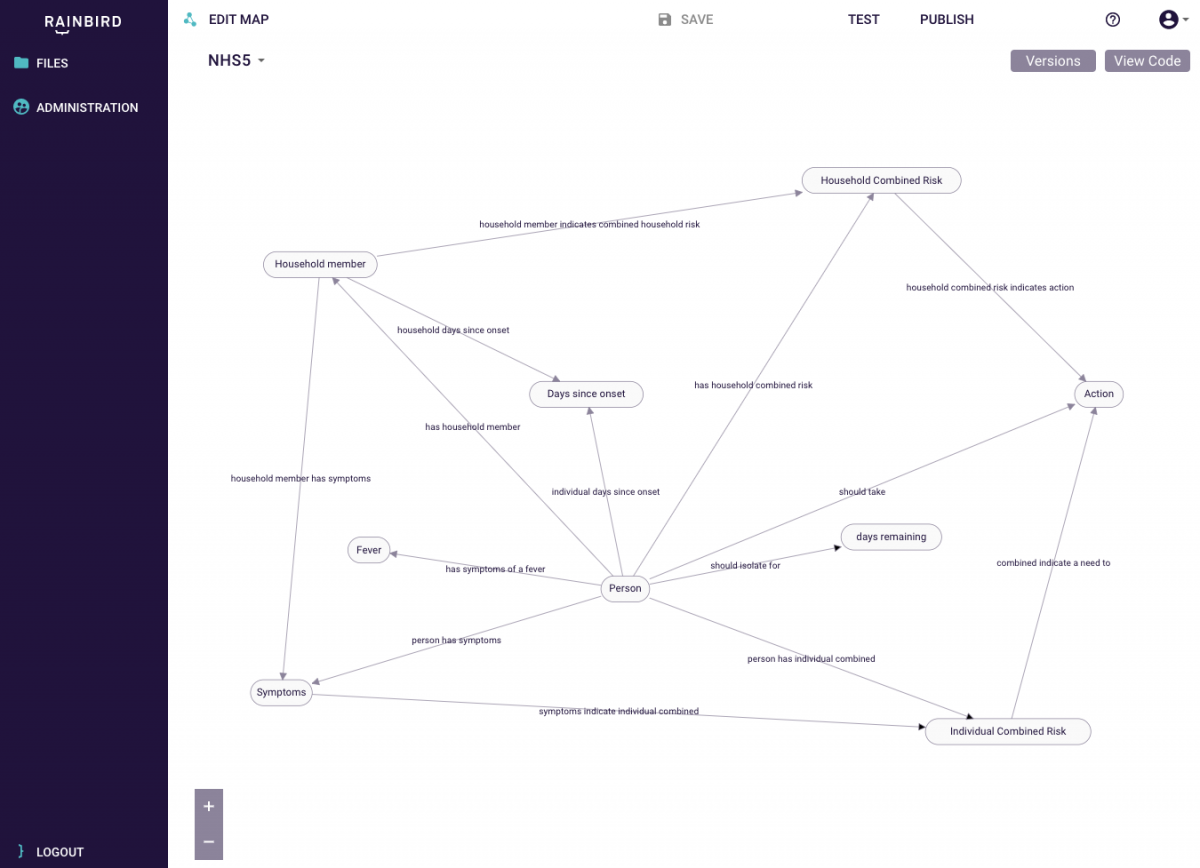Working for the Norfolk and Norwich University Hospital, intelligent automation firm
Rainbird has developed a COVID-19 risk assessment tool to help potentially vulnerable front-line workers limit their exposure to undue levels of risk from the virus. The solution provides staff with digital, one-to-one automated reports, and in doing so has the potential to markedly improve occupational health teams’ ability to effectively manage their workforce.
Using the power of intelligent automation, the tool is capable of evaluating a range of complex and nuanced factors including age, health history, cultural/religious beliefs, disability and pregnancy – critically, it also takes into account the impact of COVID-19 on BAME groups.
The technology was designed in collaboration with Dr. Robert Hardman, a leading consultant in occupational medicine.
It has already been deployed by multiple NHS trusts, including Norwich and Norfolk University Hospitals Foundation Trust (NNUH) and Royal Papworth in Cambridge, and is applicable to all front-line workers, particularly those with risk factors that may make them more vulnerable.
The 24/7, web-based chat service consults with workers to determine individual risk, summarising its assessment in the form of a redacted report for line managers/HR alongside a more detailed report for occupational health departments. This information is then used to determine whether workers should be shielded, referred for a health assessment or cleared to work in various settings, such as in clinical/non-clinical areas or from home.
The UK healthcare industry is experiencing increased demand for a service of this kind, with the Royal College of Physicians
declaring risk assessments a priority for the safety of NHS staff and Public Health England
calling for the development of “culturally competent” risk assessment tools, particularly for key workers.
Many occupational health teams must assess risk for thousands of hospital staff and make decisions about who can safely work in different areas. With no current national standard for occupational risk assessments in place, the solution provides documented clarity on where they should focus their efforts and eliminates the high level of manual work involved in doing so.
James Duez, Chief Executive Officer of Rainbird, commented: “Our tool is also very quick and safe to update as more is learnt about COVID and the risk model changes – workers can, and should, come back and be re-assessed regularly as their circumstances evolve. Not only does it provide each organisation with a clear, bird’s-eye view of who is suited to work in which environment, it allows staff to benefit from a full consultation instantly, significantly reducing their individual risk.”
Duez added: “The tool takes into account multiple levels of highly personal and variable information, something as detailed as to the type of inhaler you use and when you last needed it. This allows for a specific, tailored assessment, something which would require huge resources to replicate, at a time when staff are at maximum capacity.”




